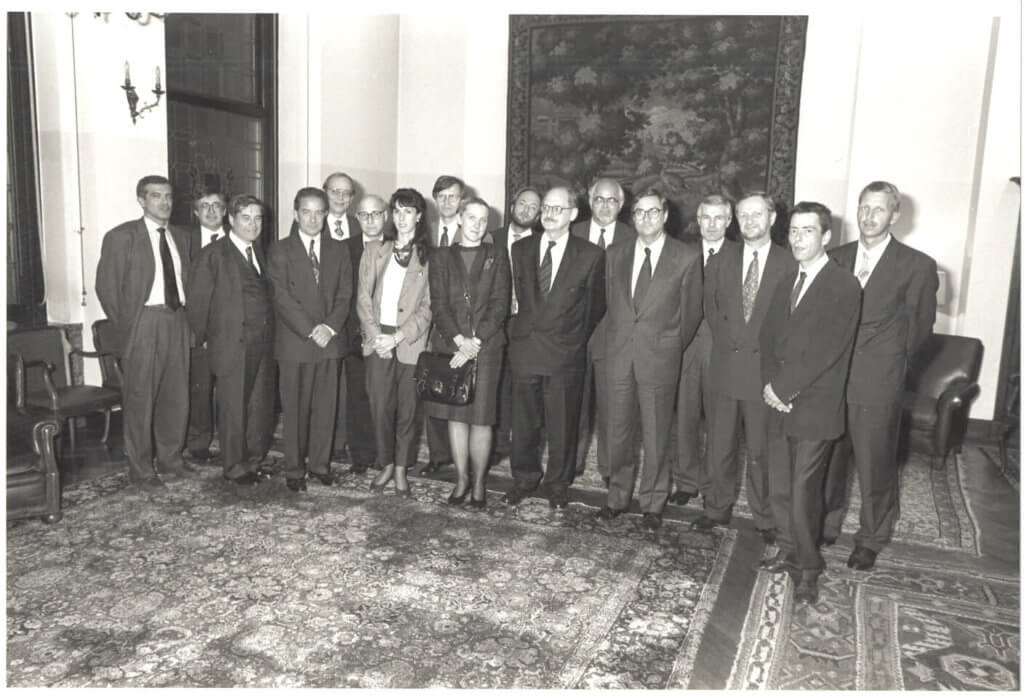Stay in the loop! Subscribe to our mailing list
About Us
ACA was founded in June 1993 in Brussels. Its three founding members were the German Academic Exchange Service (DAAD), who was the driving force behind the creation of ACA, as well as the British Council and the Netherlands Organization for International Cooperation in Higher Education (NUFFIC). Full membership was in the early years restricted to organisations from member states of the EU and the European Economic Area (EEA). In acknowledgment of the fact that the post-1990 Europe was considerably wider, ACA extended full membership to all of geographical Europe the early 2000s.
In the same way as the understanding of internationalisation saw a considerable widening over time, the core issues and themes of ACA developed and broadened. In the early years of the association, international mobility of students and staff was the overarching concern. In these years, ACA was even involved in the administration of mobility programmes. Together with another Brussels-based organisation, it ran the Socrates Technical Assistance Office, which helped the European Commission implement the Socrates Programme and Youth for Europe scheme. Mobility remained a core issue throughout ACA’s existence, with publications on mobility statistics, European and national mobility policies, and funding for mobility, amongst others. At the same time, ACA entered new ground. One example is English medium instruction (EMI), on which the association published three often-quoted studies in the first 15 years of the present millennium. A third strong pillar of ACA’s research interest became what we often refer to in ‘shorthand’ as “Europe in the world”. In this context, ACA carried out major studies and analyses on the relative attractiveness and competitiveness of European higher education in a global comparison. Such studies were complemented by promotion projects for Europe as a destination of students from all four corners of the world, mainly outside of Europe. In recent years, a new theme gained in importance: refugees in Europe, who would be supported to enter and graduate from higher education, as well as refugee scientists.
ACA has had the good luck to have had many inspiring leaders as presidents. The first ACA President was Eduardo Marçal Grilo, a Portuguese who later became his country’s education minister. He was followed by Konstantinos Kerameus, a Greek law professor of high international renown. He was followed by Sir Peter Scott, the long-time editor of the Times Higher Education Supplement (THES) and the Vice-Chancellor of Kingston University. Onto Sir Peter followed Rolf Tarrach, Rector of the University of Luxemburg and later President of the European University Association (EUA). Rolf Tarrach was succeeded by Sijbolt Noorda, a long-time President of the University of Amsterdam and today the President of the Maga Charta Observatory in Bologna, who was succeeded by Ulrich Grothus, formerly the Deputy Secretary General of the world’s largest internationalisation agency, Germany’s DAAD. The current President is Gro Tjore, Deputy Director General at the Norwegian Directorate for Higher Education and Skills (HK-dir).
ACA has so far had four Directors. The Founding Director was Alan Smith, the legendary “inventor and designer” of the ERASMUS Programme. He was followed by Julia Race, of the British Council, who later became the Director of the British Institute in Florence. She was succeeded by Jon Hagen, from the senior management of NUFFIC, and Bernd Wächter of the DAAD. As of September 2020, Irina Ferencz serves as Director of ACA.

The launching event of ACA in June 1993 in the University Foundation, Brussels.